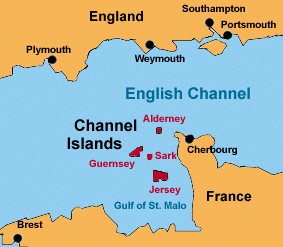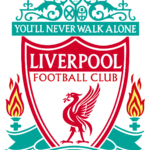Jersey is a small island, only 14.5 kilometres long and 8 km wide but finds itself in a big dispute with France about fishing rights. On 6 May, around 70 French fishing boats protested by blockingJersey’s capital and main port, St Hellier. In response, the UK senttwo Royal Navy ships, while France dispatched police boatsto monitor the situation.Back in Paris, the French government threated to cut off Jersey’s electric supply. The Jersey government, which receives 95% of its electricity from France through three undersea cables, said that to do so ‘seemed disproportionate’.
Jersey is not and has never been a member of the European Union, but the disagreement with French fishermen is rooted in Brexit – the UK’s departure from the EU.
Although only 22 km from the northern French coast, Jersey is an independent self-governing British Crown Dependency. As one of a small group known as the Channel Islands, it belonged to the French Duke of Normandy, who became King William I of England in 1066. When England lost Normandy to France in the 12th century,Jersey remained loyal to England. The US state of New Jersey is named after the island.

Jersey: a UK Crown dependency next to France
Being outside EU financial rules and the UK tax system, while benefitting from UK protection, the English legal system and language, Jersey has grown rich on financial, banking and legal services. Its annual per capita GDP is around €52,000, compared to€36,000 for the UK. Fishing accounts for less than 1% of Jersey’s economy, but although independent of the UK, fishing in the island’s waters is covered by the trade and cooperation agreement (TCA) signed by the UK and the EU as part of Brexit.
Under the TCA, French fishing boats need new licences to fish in Jersey waters. On 30 April, Jersey granted 41 licences but only to French boats that could prove that they had fished in Jersey waters at least 10 times in the past three years. Other French fishermen complained loudly that the new conditions restricted their access to fish. France and the EU claimed that the new licence conditions were illegal under the TCA as they had been introduced with no warning and were not supported by marine scientific evidence.
For many French fishermen from Normandy, fishing in Jersey waters is their livelihood accounting for between 50% and 80% of their catch. Without new licences, many will not survive. Their protest was driven in part by anxiety over their future. Jersey fishermen have also suffered. Many have gone out of business. Since Brexit, they can no longer sell their catch directly to the EU. Jersey fishermen were angry that while their access to EU markets was blocked in January, French vessels continued to fish in Jersey waters as before until the new licences came into effect on 1 May.
By late Friday 7 May, French fishermen were all back in their home ports and the Royal Navy and French police boats had left the scene. After their 15-hour long protest in Jersey, some French fishermen were content to have raised awareness about their situation, not just in Brussels, London and Paris, but around the world, including Washington D.C. People may be more aware, but no solution to the problem over licences to fish in Jersey waters has yet been found. Discussions will continue but will not be easy as one side declares its refusal to be intimidated by the Royal Navy and the other that it will not submit to threats to turn the lights off.
But disputes about fishing are a symptom of the problems Brexit poses for the UK and its European neighbours. In January, Scottish fishermen and lorry drivers protested in London, at the height of the coronavirus pandemic, about the difficulties of selling fresh produce to mainland Europe due to the time needed to complete post-Brexit export documentation. Fishermen from Hull, on England’s north-east coast, are tied up in port after losing access to Norwegian fishing grounds. Across the UK, the fishing industry is accusing the UK government of ‘betrayal’ over Brexit.
Brexit is also posing problems for trade in food and drink in Northern Ireland, which although part of the UK, needs to complete documentation to move goods to Great Britain (England, Scotland and Wales). This was agreed under the Brexit protocol to keep open the land border between Northern Ireland and the Republic of Ireland as required under a peace agreement in 1998 that ended 30 years of political instability and terrorist violence in Northern Ireland. A dispute has already arisen between the UK and the EU over different interpretations of the protocol.
More disagreements between the UK and Europe are likely. The fishing part of the TCA comes up for renegotiation in 2026. The UK government faces pressure to change the Northern Ireland protocol following rioting in several towns and cities there in April. Further, the point of Brexit was to enable the UK to diverge from EU standards. Divergence is possible under the agreement if the UK does not gain an ‘unfair competitive advantage’ by, for example, lowering environmental standards or workers’ rights, or by subsidising its industries. What is fair and unfair has yet to be decided.
One thing is clear. Despite UK Prime Minister Boris Johnson’s insistence, Brexit is not done.


